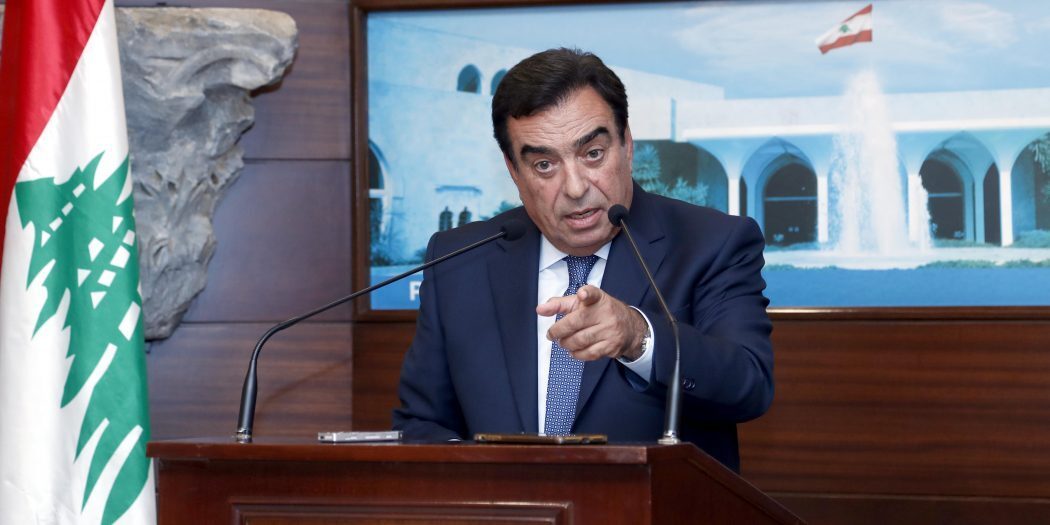Qatar denounced the Lebanese minister’s comments.
Qatari authorities on Saturday denounced comments made by Lebanon’s new information minister, urging Beirut to take urgent measures to resolve the growing diplomatic rift.
The remarks, made by George Kordahi ahead of his appointment as a government official, criticised the Saudi-led coalition’s military intervention in Yemen, where tens of thousands of civilians have been killed in a conflict described by the United Nations as the world’s worst humanitarian crisis.
Statement : Information Office of Ministry of Foreign Affairs Announces Surprise and Denunciation of Recent Statements by Lebanese Information Ministerhttps://t.co/ioe8WRe7vE#MOFAQatar pic.twitter.com/IeFfScHpvo
— Ministry of Foreign Affairs – Qatar (@MofaQatar_EN) October 30, 2021
During a previously broadcast television show that resurfaced last week, Kordahi described the war as “futile” and said it is “about time for it to end.”
He added that Yemen’s Houthi rebels, who overran the capital and pushed out the internationally-recognised government in 2014, were simply “defending themselves… against an external aggression”.
“Homes, villages, funerals and weddings were being bombed” by the Saudi-led coalition, Kordahi added.
Both the Saudi-led coalition and the Houthis have been accused by rights groups of engaging in war crimes throughout the years-long conflict.
Despite sharing his opinions as a civilian at the time, the now-resurfaced remarks have triggered fury across the Gulf Cooperation Council that has quickly transformed into a diplomatic rift between the bloc and Beirut.
Saudi Arabia along with Bahrain, the United Arab Emirates, and Kuwait took joint action in expelling their Lebanon envoys and withdrawing their ambassadors from Beirut.
Riyadh has even imposed a ban on trade with Lebanon, while the UAE banned its citizens from traveling to the country.
In a statement, Doha’s foreign ministry on Saturday said it “calls on the Lebanese government to urgently and decisively take the necessary measures in this regard to calm the situation and to quickly heal the rift between the brothers.”
Qatar dismissed Kordahi’s comments as “irresponsible” and accused him of plunging Lebanon into an “external crisis.”
Mixed reactions
Kordahi, a well-known television presenter, confirmed to the media on Wednesday that the televised interview took place on 5 August before he became a minister and said it reflects his “personal opinion.”
In Beirut, the newly-formed government led by Prime Minister Najib Mikati is scrambling to find a solution to the added weight of the growing rift as Lebanon struggles to face a number of crises.
According to Al Jazeera, Lebanon’s foreign minister said the government has not officially asked Kordahi to submit his resignation. However, in a tweet posted on Twitter, Sleiman Tony Frangieh, the current leader of the Marada Movement, said Kordahi had offered his resignation.
“But I refused as he did nothing wrong,” Frangieh said.
The unravelling diplomatic crisis between Lebanon and GCC states has divided opinions online.
“This furore is either totally irrational or intentionally whipped up to bring down a gov’t KSA doesn’t like: A mild critique of Arab coalition war in #Yemen is considered interference but whipping up a frenzy against #Lebanese gov’t isn’t?”, Lebanese political analyst Nabeel Koury said in a tweet.
“Even as a journalist, George Kordahi forgot that Yemeni journalists leave Houthi prisons as corpses? And he says what? The Houthis are defending themselves?”, Yemeni political analyst Baraa Shiban said.
Lebanon is already in the grips of its worst economic crises in history.
Lebanon is in dire need of financial and economic aid, both of which have been stalled due to political instability and a deadlock in reforms. The international community had previously refused to provide such financial incentives until the new Lebanese government receives its vote of confidence, which has now taken place.
This has left the average Lebanese struggling amid the country’s worst ever economic crisis, with three-quarters of the population plunged into poverty. The Lebanese pound has lost almost 90 percent of its value.
Recently-appointed PM Mikati said one of his top priorities is to resolve the country’s crippling fuel crisis, and to resume negotiations with the International Monetary Fund to aid the country’s dire economy.
However, the country is still facing hours of electricity cuts that have exacerbated the unprecedented economic and financial crisis.







